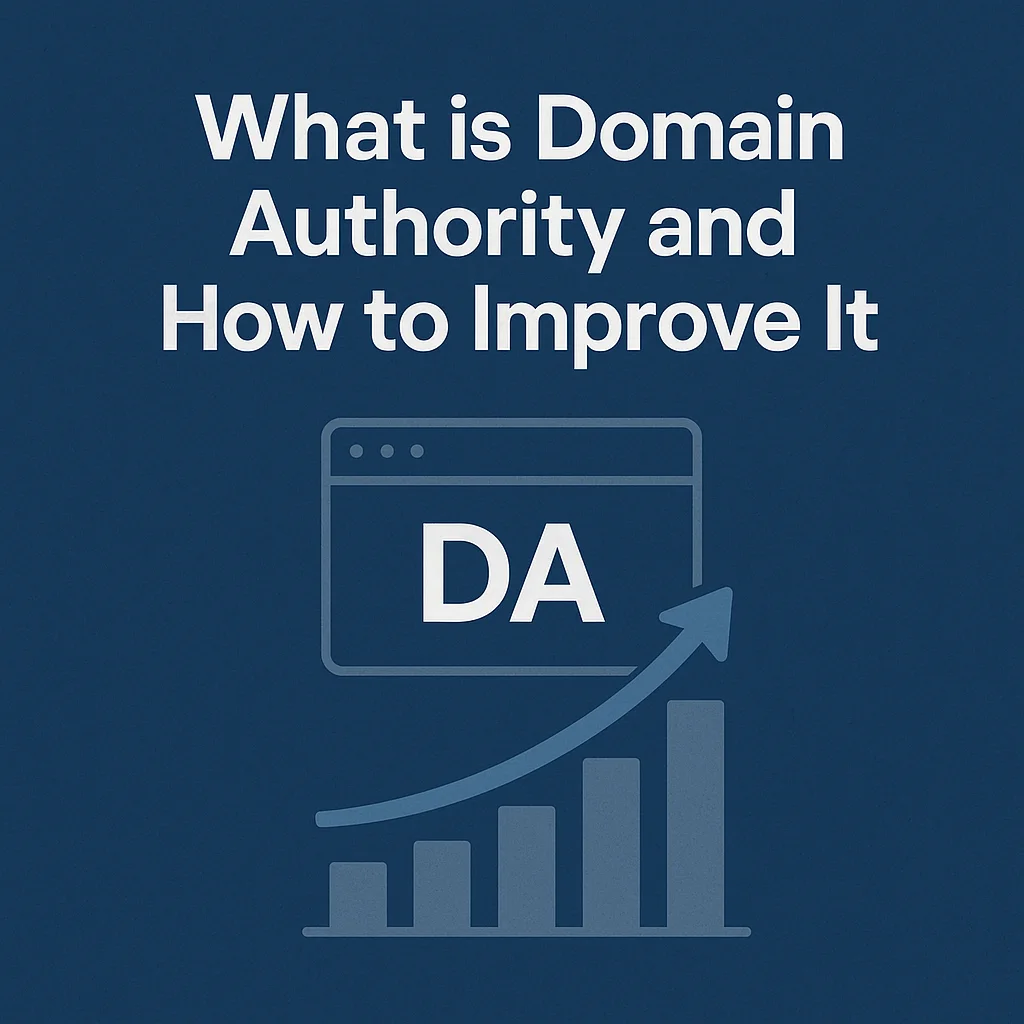Are you struggling to get your website noticed? Increasing your Domain Authority can be the game-changer you need.
When your site has higher authority, search engines trust it more, and you rank higher in search results. Imagine more visitors, more clicks, and more growth—all from simple, effective steps you can start today. Keep reading, and you’ll discover how to boost your Domain Authority quickly and confidently.
Your website’s success is just a few moves away.

Credit: www.remedo.io
Domain Authority Basics
Understanding the basics of Domain Authority helps improve your website’s ranking. Domain Authority shows how strong your website is in search engines. It predicts how well your site can rank for keywords.
Many factors affect this score. Knowing them helps you make better SEO decisions. Let’s explore what influences Domain Authority and why it matters.
What Influences Domain Authority
Domain Authority depends on many things. The number of quality links to your site is important. More trusted sites linking to you means higher authority.
Content quality also matters. Good, useful content attracts visitors and links. The structure of your site affects how easily search engines read it.
Site speed and mobile friendliness play a role too. A fast, easy-to-use site keeps visitors happy. All these factors work together to build your Domain Authority.
Why Domain Authority Matters
Higher Domain Authority helps your site rank better in search results. It means more people find your website. More visitors can lead to more business or followers.
Search engines trust sites with higher authority. They show these sites higher on the results page. This trust builds over time with good SEO practices.
Improving Domain Authority is a steady process. Focus on quality links and content. This makes your site stronger and more visible online.

Credit: www.fiverr.com
Quality Link Building
Quality link building helps improve your website’s domain authority. Search engines trust sites that have many good backlinks. These links show your site is valuable and reliable. Focus on earning links from relevant and trusted websites. Avoid spammy or low-quality links. Quality links bring steady traffic and better rankings.
Earning Backlinks Naturally
Create useful and original content that others want to share. Write helpful guides, interesting stories, or detailed tutorials. Share your content on social media and forums. Engage with your audience and answer their questions. When your content solves problems, sites link to it naturally. Patience is key; natural links grow over time.
Guest Posting Tips
Find websites related to your niche that accept guest posts. Write clear and informative articles that add value to their readers. Avoid self-promotion; focus on sharing knowledge. Include a relevant link back to your site in the author bio or content. Follow each site’s guidelines carefully. Good guest posts build your reputation and earn quality links.
Leveraging Influencer Outreach
Reach out to influencers in your field with a polite message. Offer something useful, like a free product or exclusive content. Ask if they can review or mention your site. Influencers have loyal followers who trust their recommendations. A link from them can bring real traffic and boost authority. Build genuine relationships for long-term benefits.
Content Optimization
Content optimization plays a big role in increasing domain authority. It helps search engines see your site as useful and trustworthy. Optimized content keeps visitors interested and encourages them to stay longer. This shows search engines your site has value.
Good content is the foundation of a strong website. It must be clear, helpful, and easy to read. Quality content attracts natural backlinks, which improve your domain authority. Regular updates keep your site fresh and relevant.
Creating Valuable Content
Focus on creating content that answers questions. Provide facts and useful tips. Use simple words and short sentences. Make your content easy to scan with headings and lists. Valuable content encourages visitors to share and link to your pages.
Updating Existing Pages
Keep your old pages up to date. Check facts and add new information. Fix broken links and improve readability. Updating pages shows search engines your site is active. It also improves user experience and keeps visitors coming back.
Using Keywords Effectively
Choose keywords that match what people search for. Use them naturally in titles and text. Avoid keyword stuffing. Place keywords in important spots like headings and first sentences. Proper keyword use helps search engines understand your content better.

Credit: www.fiverr.com
Technical Seo Improvements
Technical SEO improvements make your website easier for search engines to read. This helps boost your domain authority over time. Search engines like fast, easy-to-navigate sites. Fixing technical issues improves user experience and search rankings.
Improving Site Speed
Site speed affects how visitors and search engines see your site. Slow pages cause users to leave quickly. Use tools to test your website speed. Compress images and reduce unnecessary code. Fast websites gain higher rankings and more trust.
Mobile-friendly Design
Most people use phones to browse the web. Your website must look good and work well on mobile devices. Use responsive design to fit all screen sizes. Avoid small buttons and hard-to-read text. Mobile-friendly sites perform better in search results.
Fixing Crawl Errors
Crawl errors stop search engines from reading your pages. These errors lower your site’s authority. Check your site with tools like Google Search Console. Fix broken links and missing pages quickly. A clean site structure helps search engines index your content fully.
Enhancing User Experience
Enhancing user experience is key to increasing domain authority. Visitors stay longer on sites that are easy to use. Search engines notice this and rank such sites higher. Focus on making your website clear, fast, and enjoyable. This helps build trust and improves your site’s reputation.
Simplifying Site Navigation
Clear navigation guides visitors to what they want quickly. Use simple menus and logical page order. Avoid clutter and too many options. Ensure all important pages are easy to find. This reduces confusion and keeps users engaged.
Engaging Visual Elements
Images and videos make content more interesting. Use relevant visuals that support your text. Keep them light to avoid slow loading times. Properly sized images improve site speed. Visuals break up text and make reading easier.
Reducing Bounce Rates
High bounce rates lower your domain authority. Offer useful content that matches visitor intent. Improve page speed and mobile friendliness. Use clear calls to action to guide users. A smooth experience encourages visitors to explore more pages.
Leveraging Social Signals
Leveraging social signals plays a key role in increasing domain authority. Social signals are the likes, shares, comments, and mentions your website content gets on social media platforms. These actions help search engines see your content as valuable and trustworthy. More social activity often means higher rankings and better visibility.
Building Social Media Presence
Create profiles on popular social media sites like Facebook, Twitter, and LinkedIn. Post regularly to keep your audience engaged. Share useful content that relates to your website’s niche. Consistent activity builds trust and draws more visitors to your site. Engaged followers can turn into loyal readers and customers.
Encouraging Shares And Mentions
Make your content easy to share with social buttons on your pages. Ask readers to share if they find your content helpful. Engage with your audience by responding to comments and messages. Mention influencers or brands to encourage them to share your posts. These actions increase social signals and boost your domain authority.
Monitoring And Analytics
Monitoring and analytics are key to improving domain authority. They help you see what works and what does not. Without tracking, you cannot measure progress. Analytics give clear data to guide your SEO efforts. They show which pages gain strength and where to improve. Regular checks keep your strategy on track.
Tracking Domain Authority Progress
Track your domain authority score regularly. Note changes over weeks or months. Use this data to spot trends and patterns. Watch which pages boost your score the most. Identify drops quickly to fix issues fast. Keep a record of updates and link building activities. This helps connect actions with results.
Using Seo Tools Effectively
SEO tools provide valuable insights for domain authority. Use them to analyze backlinks and site health. Check keyword rankings and competitor strategies. Tools like Moz, Ahrefs, and SEMrush offer domain authority metrics. Set alerts for sudden changes or new links. Use data to adjust your SEO plan smartly. Focus on tools that fit your skill level and budget.
Frequently Asked Questions
What Is Domain Authority And Why Does It Matter?
Domain authority measures a website’s ranking potential on search engines. Higher scores mean better visibility and more organic traffic. It helps predict how well your site will rank compared to competitors, guiding your SEO strategy effectively.
How Can I Improve My Website’s Domain Authority?
Focus on quality backlinks, relevant content, and strong internal linking. Optimize site speed and mobile usability. Regularly update your site and remove toxic links to boost your domain authority steadily over time.
Does Domain Authority Affect Google Rankings Directly?
Domain authority itself is not a Google ranking factor. However, it correlates with higher rankings because it reflects strong SEO practices and quality backlinks, which do impact Google search results.
How Long Does It Take To Increase Domain Authority?
Increasing domain authority typically takes several months. Consistent SEO efforts, quality content, and backlink building contribute gradually. Patience and persistence are key for noticeable improvements.
Conclusion
Building your domain authority takes steady effort and smart choices. Focus on creating helpful content that others want to share. Earn links from trustworthy sites by being active and genuine. Keep your website fast, safe, and easy to use. Check your progress often and adjust your strategies.
Small steps lead to big improvements over time. Stay patient and consistent to see lasting results. Your website’s reputation will grow with each good action. Keep working on these basics to increase your domain authority.

